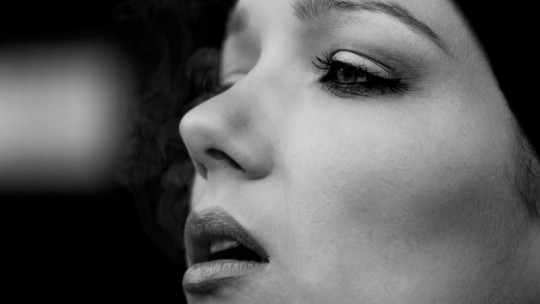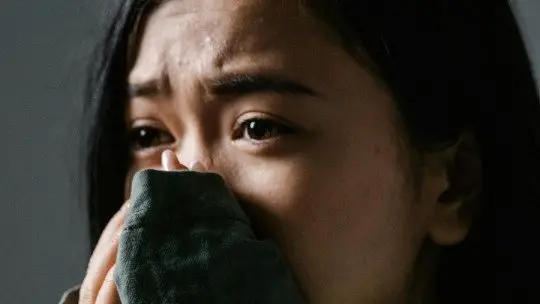
Research suggests that most people will experience at least one anxiety attack in their lifetime. Those people who behave more anxiously will have more anxiety attacks and some of these will develop panic disorder when the anxiety attacks interfere with their daily life. In this PsychologyFor article, we explain what to do when faced with an anxiety attack and how to act at all times.
Causes of an anxiety attack
An anxiety attack is a high stress response triggered by worries, fears, or anticipating that something bad is going to happen. Anxiety can also be caused by the involuntary action of a stressed body. Before seeing what to do when faced with an anxiety attack, it is important to know its causes. Next, discover the causes of an anxiety attack:
- Family or emotional problems: include situations of divorce, separation or grief or loss of a loved one.
- Work and financial pressure: difficulties in facing responsibilities or changing jobs.
- Have less physical mobility: Reduced physical capabilities can cause stress.
- Pathologies: social phobia, obsessive compulsive disorder (OCD) or post-traumatic stress disorder (PTSD).
- Factors genetic: There are people genetically more prone to stress.
- Fear: the fear of certain situations such as public speaking or due to a psychological disorder.
Types of anxiety attacks
To know how to control an anxiety attack, it is also important to know what types of anxiety attacks exist:
- Voluntary anxiety attacks: When we think something bad is going to happen, we worry and the body activates a stress response.
- Involuntary anxiety attacks: when the body activates a stress response due to accumulated stress.
How to control an anxiety attack
Once an anxiety attack has triggered, there are some things you can do to stop it and reduce its symptoms. Although it may take time and seem difficult at first, we can all control our anxiety. We tell you how to control an anxiety attack.
- Understand the anxiety attack: To know what to do in an anxiety attack you have to understand what an attack is, what causes it, how your body responds, the stages of the stress response and how stress affects the body. Being able to recognize the anxiety attack It helps not to be afraid of it and stop it.
- stop being afraid: Another solution for anxiety attacks is not to be afraid of them. one of the most common causes of repeated anxiety attacks and the development of panic disorder. If you eliminate your fear, one of the main causes, the anxiety attack disappears.
- just relax– Calming yourself is a sure way to end, control and prevent anxiety attacks. The more relaxed you are, the shorter the panic attack will last and the sooner you will feel better. Keep in mind that the physiological, psychological, and emotional changes resulting from a minor stress response last approximately less than 10 minutes. You should try to stay calm until the body recovers from the stress response.
- Diaphragmatic breathing: Breathing slowly with the diaphragm has a calming effect. With this effect, we try to counteract the effect of the stress response and will help stop the anxiety attack.
- Relax your body: To control an anxiety attack it is important to relax the body, as it prevents the stress response from continuing. Performing progressive muscle relaxation causes the body to exhaust itself faster and expel stress hormones, making the feelings associated with the stress response go away.
- distract your attention: If you’re wondering what to do in case of an anxiety attack, distracting your attention stops you from thinking anxiously. By preventing these thought patterns, you are also preventing anxiety attacks. There are many ways to distract yourself: counting, calling a friend, organizing things, playing a game, reading a book, etc. The important thing is that you are able to focus on that activity.
- All anxiety attacks end: All anxiety attacks end, regardless of their intensity. Depending on how we act in the face of the anxiety attack, it may last more or less. Facing the panic attack knowing that it will end can help us be more relaxed, which will make it last less.
- Your body responds to danger: An anxiety attack is a common response of the body when in danger, but the actual cause it’s not a real danger. Many people seek to experience that stress response in activities such as skydiving or bungee jumping. So a stress response in itself is not a bad thing, but rather the body’s survival mechanism. Although you may feel like you are in danger during the anxiety attack, you are not.

Tips for anxiety attacks
Now that we know what to do when faced with an anxiety attack, in addition to going to a professional and undergoing therapy, we can make changes in our lives that help us prevent another new anxiety crisis.
- Avoid tobacco, alcohol and caffeine: can cause panic attacks in susceptible people. If you are wondering what to do in case of anxiety, it is best to avoid them. Additionally, you should be careful with medications that contain stimulants. In this article you will find information about the effects of alcohol on the brain and nervous system.
- Learn to control breathing: Deep breathing can relieve these anxiety attack symptoms. By learning to control your breathing, you will develop coping strategies that you can use to calm yourself when you start to feel anxious. If you’re wondering what to do in an anxiety attack, learning to control your breathing will help you reduce the sensations of the anxiety attack you fear.
- Practice relaxation techniquesAnother tip for anxiety attacks is to practice yoga, meditation and progressive muscle relaxation regularly to strengthen the body’s relaxation response. In addition to relaxation, they also increase the feeling of joy and fulfillment.
- Practice exercise: It is a natural anxiolytic. Aerobic exercise that requires movement of the arms and legs such as walking, running, swimming or dancing can be very effective.
- Good sleep quality: Lack of sleep or poor quality sleep can worsen anxiety. Try to sleep between 7 and 9 hours and make sure that sleep is quality.

This article is merely informative, at PsychologyFor we do not have the power to make a diagnosis or recommend a treatment. We invite you to go to a psychologist to treat your particular case.
If you want to read more articles similar to What to do when faced with an anxiety attack we recommend that you enter our Clinical Psychology category.
Bibliography
- Browning, R. (2017). How to control anxiety and panic attacks: effective secrets to become you again and enjoy life relaxed. Paris: Independently published.
- Manassee, L. (2005). Overcoming anxiety and panic: 121 tips applicable to real life. Barcelona: Obelisco Editions








